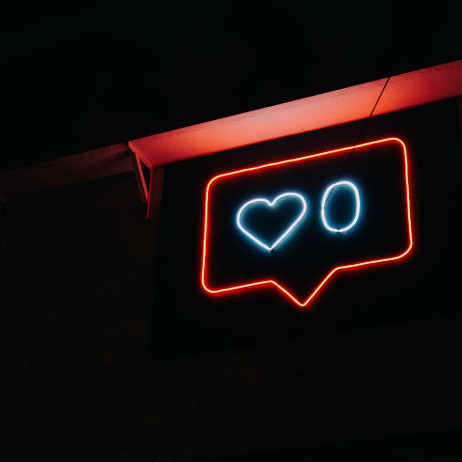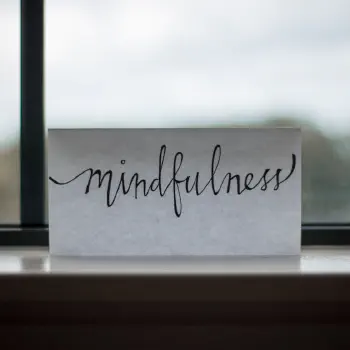Anxiety is often experienced as a physical reaction in the body. You might notice anxiety in the form of increased heart rate, sweating, needing to pace around a lot, hot flashes or chills, nausea, or shortness of breath.
This is your body going into “alert mode”. Your body is perceiving some sort of danger around you and these signs are ways in which your body is getting into gear to deal with that danger.
In the current situation, that “danger” could be related to the COVID-19 pandemic, the uncertainty and novelty that surrounds it, and the sudden changes to our lives happening as a result.
This anxiety is a common response of our bodies and minds to any kind of uncertainty. What might help right now is for us to access resources to cope with the anxiety.
Different coping skills may work for different people. The following tips and exercises can be useful starting points for us to manage our distress - but take your time to figure out what works best for you.
1. Breathing
When anxiety walks in, the first thing that may get affected is the way we breathe. We either have short, quicker breaths or we end up holding our breath without even realizing it! Which is why, managing anxiety often begins with regulating our breathing. Our breath is an amazing anchor for our body. Regulating our breathing is basically a way of comforting the “alert mode” in our body and calming it down. Breathing slowly and deeply can help to slow down or reduce the intensity of the above anxiety signs. It reminds your body that there is no immediate danger to you right now. You are safe.
Here are a few breathing and relaxation exercises that you can access : View Resource
2. Grounding
Grounding can refer to any activity or tool that helps us stay in the present. Anxiety often uses its ways to get us worried or panicked about the future and its uncertainty. Our minds might be racing with difficult thoughts and questions right now.
The fact is that at this point of time, we know what we know. There are many questions about the future that are unanswered and we may not be able to predict these outcomes yet. This can be scary. But we must take stock of what we can control right now and what we cannot. A definite answer to our questions may not be here yet and we may not be able to fix things. But what we can do is comfort ourselves through this distress by returning to what we can engage with : the here and now.
Here are some exercises that you can try on grounding: View Resource
3. Managing Thoughts
Are you noticing your thoughts spiraling or your mind racing? Anxiety might sneak in this way too and you’re not alone in experiencing this. It is valid and a common response to the current situation. The thoughts fuelling our anxiety are not completely baseless or irrational. It is important that we acknowledge this first. You are not “overthinking”, “over dramatic” or “going crazy”. This is a terribly difficult time we are experiencing on a global level. Be kind and cut yourself some slack, allow yourself to feel this without judgment, and know that we are in this together.
Here are some ways to manage our anxious thoughts:
Journalling. : Maintaining a journalling routine (morning or night) can help to keep our thoughts in check and allow us to have a space to express them freely.
Access facts from credible sources.:Access facts about the pandemic from credible sources. With the barrage of information and opinions on social media, our anxious thoughts end up functioning on overdrive. Give it a break when needed and limit the sources from where you access the news.
Create a daily schedule (or don’t) .: Create a daily schedule or allow your time to free flow. If you are in self-quarantine right now as a precaution and have the privilege to work from home, this can be a sudden change. Changes can spur up our anxiety and uncertainty. Each of us might find a different way of responding to this change and soothing the uncertainty. Some of us may want to structure our day and create a reliable routine. Having a plan for each day means having something concrete to look forward to, which in turn can help quell our anxious thoughts. Some of us may not find structures helpful and it may add to our anxiety. It’s okay to then allow our time to pass with more ease, doing things you want to do without having to schedule them.
Don’t be hard on yourself.: These unprecedented changes in our lifestyle, emotions, and work process in the face of a health pandemic are things that none of us has ever prepared for. Allow yourself ample time to find adjustment to the new circumstances. Don’t be afraid if you’re not sure where to start or what are the right things to do. It might help to reach out for support to a loved one or a therapist.
4. Social Connection and Community Support
Lean on each other. Connect with loved ones and your community. Openly share your thoughts with them while listening to theirs too. Ask for any specific help that you are looking for, whether it is buying groceries, ordering medicines or scheduling regular calls to check in on each other. Offer help to others if you feel comfortable to do so. This does take courage and a fair share of vulnerability - acknowledge that it’s not easy. To know that we are not alone in this anxiety helps to create a collective experience of support.































